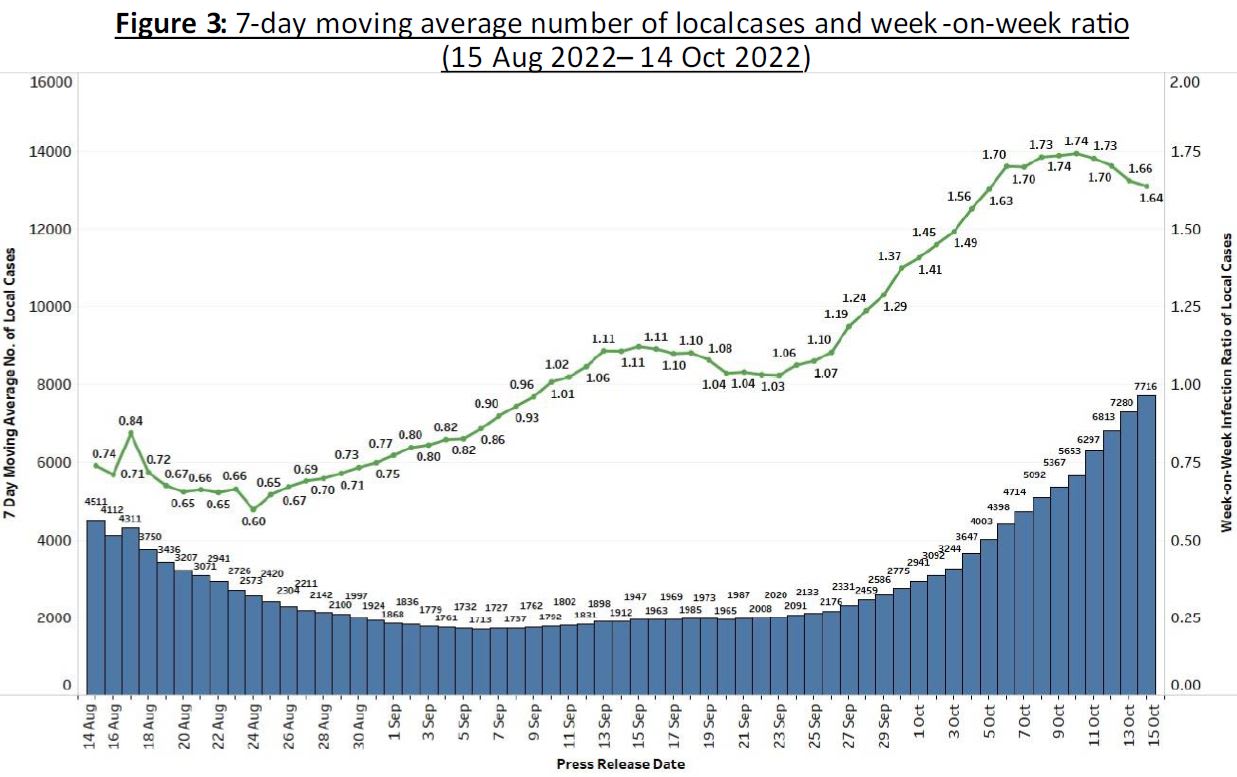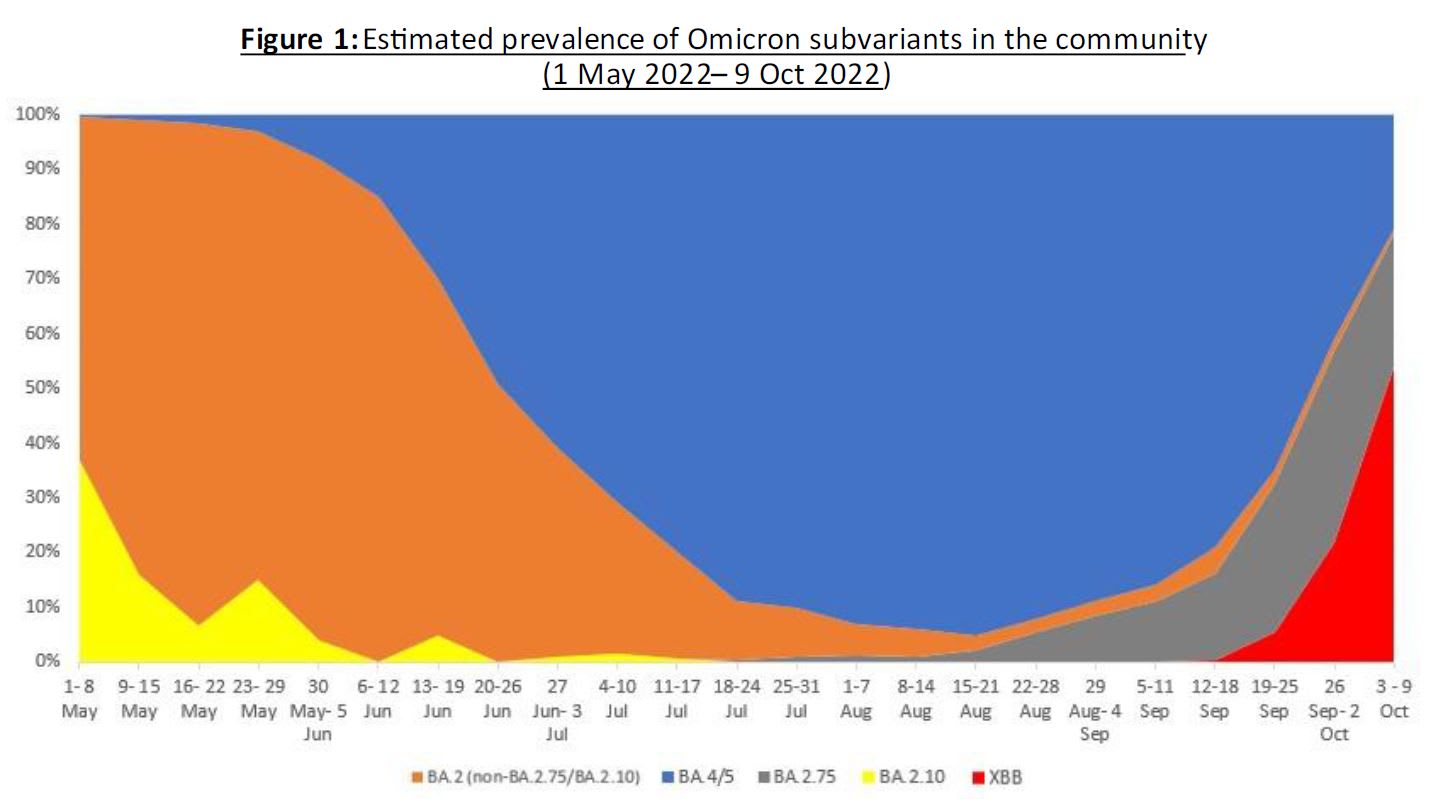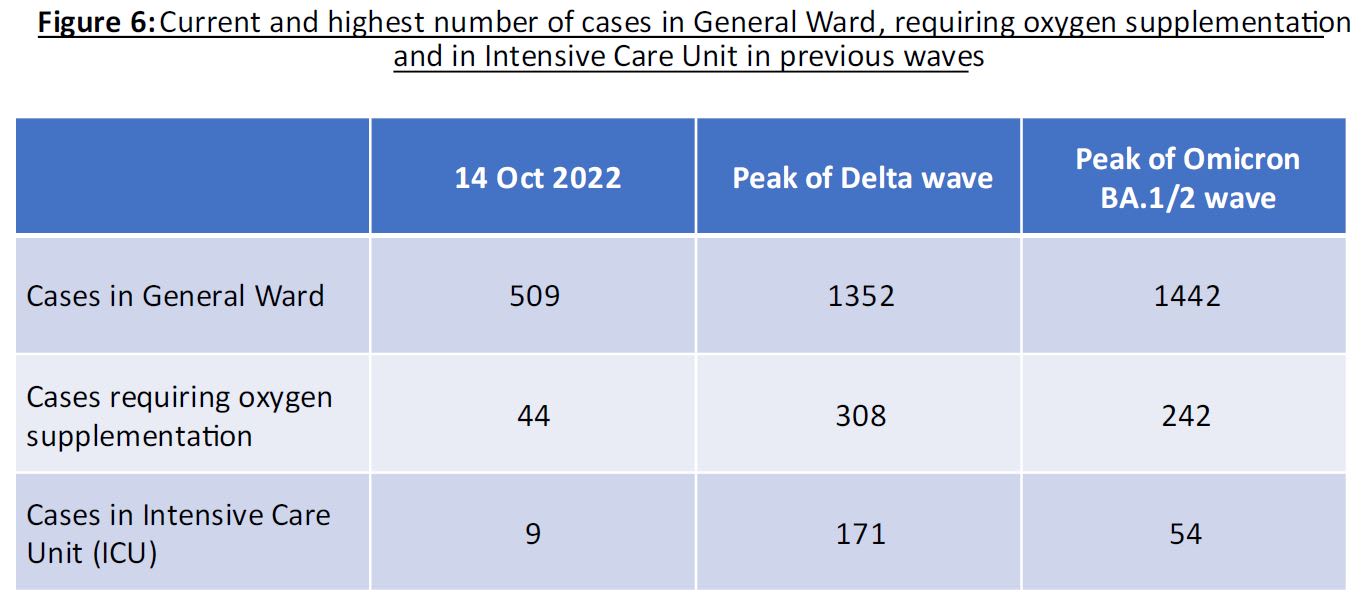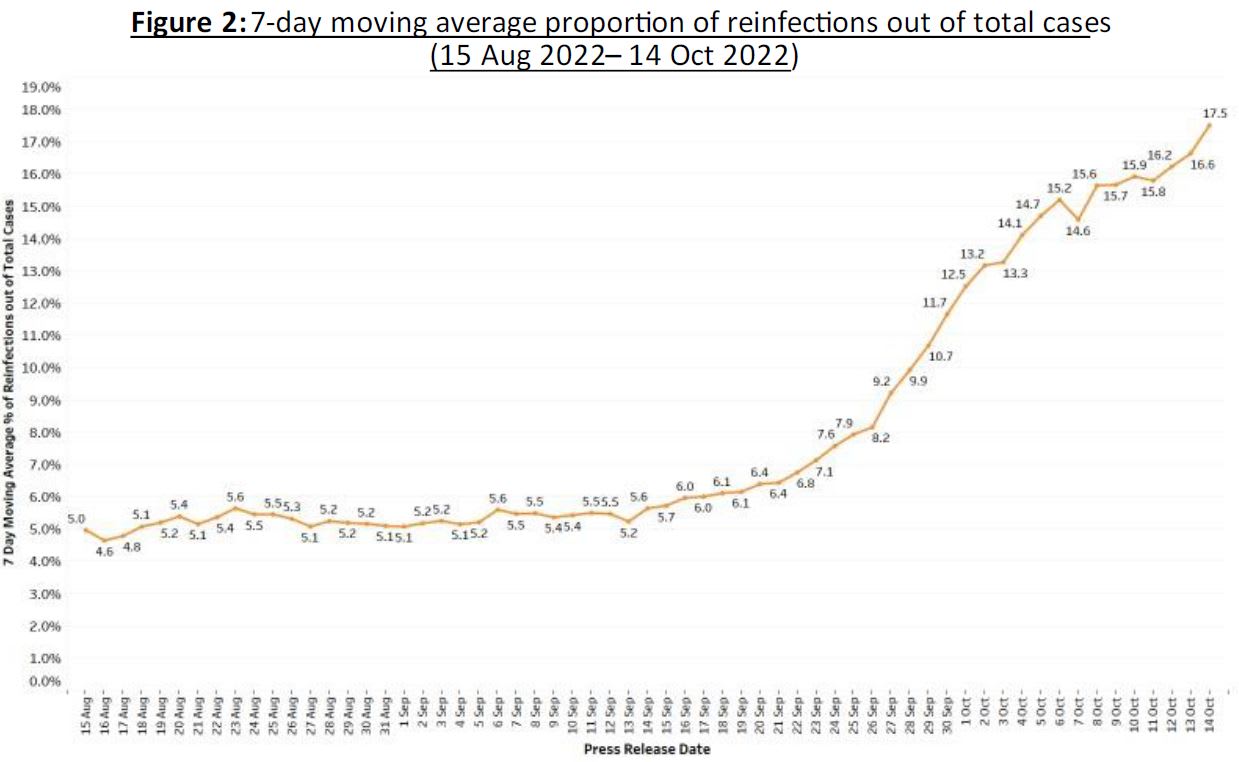‘Short and sharp’: COVID-19 wave of XBB infections in Singapore likely to peak in mid-November
SINGAPORE: The current wave of COVID-19 cases, driven by the XBB strain, will likely peak by around mid-November, Health Minister Ong Ye Kung said on Saturday (Oct 15).
“This is likely to be a short and sharp wave,” said Mr Ong, saying that Singapore is likely to see about 15,000 daily cases on average. "By around mid-November, we should see the wave subsiding."
He added that on certain days when more cases tend to be reported, such as on Tuesdays, the caseload could reach 20,000 or 25,000.
The Ministry of Health (MOH) said that using the BA.5 wave as an indication, hospitalised cases peaked at 800 in July, and hospitals in Singapore, while stretched, were able to cope.
The proportion of cases with the XBB strain, an Omicron subvariant, has been on the rise in Singapore over the past month. While highly transmissible, it has not caused more severe disease than previous variants thus far.
On Oct 14, there were 9,087 new COVID-19 cases reported in Singapore and nine were in ICU. A total of 562 patients were hospitalised, with 44 requiring oxygen. The week-on-week infection ratio is 1.64.

Referring to the chart above showing the 7-day moving average number of cases, Mr Ong said: "We're still seeing cases rising, but it has started to turn down which means cases are not accelerating."
In Singapore, XBB is now the predominant subvariant, accounting for 54 per cent of local cases from Oct 3 to 9. It was first detected in August in India and has since been detected in more than 17 countries, including Australia, Bangladesh, Denmark, Japan and the US, said MOH.
The current wave is largely driven by the XBB strain, and reinfections are also contributing to the wave, Mr Ong said. He pointed out that within three weeks, XBB is "outcompeting" the other Omicron subvariants.


"Because 75 per cent of our population has already been infected, so any new wave has to be a reinfection, contributed by infection. That's what we are seeing now," he said.
The proportion of reinfections among total COVID-19 cases in Singapore has been increasing over the past month, with reinfections currently making up about 17 per cent of total new cases.
Mr Ong explained that while people may get reinfected soon after one bout of COVID-19, that is rare. The chance of getting COVID-19 again for one to three months after one infection is much lower than if one has never got the disease. But this resistance wanes over time.
"People who got infected last October or earlier ... your risk of being infected is almost the same as a COVID-naive person. So that's what also driving infection."

MORE HOSPITAL BEDS FOR COVID-19 PATIENTS
Director of Medical Services Kenneth Mak said that while the number of coronavirus cases is rising, the number of severe cases and hospitalisations is not as high as in previous waves.
There are sufficient ICU beds for both COVID-19 and non-COVID patients, and there are slightly more than 50 adult ICU beds for COVID-19 cases, he added.
MOH said that in response to the surge over the past two weeks, public hospitals have rapidly activated various measures to operate about 200 more beds for COVID-19 patients.
These include deferring non-urgent admissions, discharging stable patients home or to nursing homes and transferring recovering patients to transitional care facilities and community hospitals.
"The number of COVID cases in our ICUs are slowly rising in tandem, as the community cases have increased, albeit at a lower trajectory," he said.
"I seek the understanding that our public hospitals have to prioritise their resources to cater for those who are more seriously ill."
In the coming two weeks, public hospitals will ramp up bed capacity for COVID-19 patients, and this is being done in stages - until 800 beds - by early November. Dr Mak added that members of the public are encouraged to only go to the emergency department for emergency conditions.
"At this point in time, we're still able to handle the increased attendances that we've seen in emergency departments. But we are mindful that we need to continue to preserve that capacity," said Dr Mak.
BIVALENT VACCINE
Mr Ong urged people in Singapore to exercise personal responsibility, reminding the public to monitor their health and to go for vaccinations if eligible.
As of Friday - when the Moderna/Spikevax bivalent vaccine was rolled out - more than 4,000 people have received the jab, said MOH.
The vaccine is currently available to those who have yet to achieve maximum protection, or those aged 50 years and above who have received their last vaccine dose more than five months ago.
To questions on when bivalent vaccines will be made available to people younger than 50, Mr Ong said that "supplies are coming in", and the Government is recommending vaccination for older people first as they are at higher risk of getting severe disease.
"As supplies come in, our intention is to extend it further (to those who are younger)," said Mr Ong.
"Having said that, I should say that - get your minimum protection, meaning three mRNA doses; our data shows that your vaccination and your protection against severe illness - if you're a young person - it's still quite strong."
BOOKMARK THIS: Our comprehensive coverage of the COVID-19 pandemic and its developments
Download our app or subscribe to our Telegram channel for the latest updates on the coronavirus pandemic: https://cna.asia/telegram










